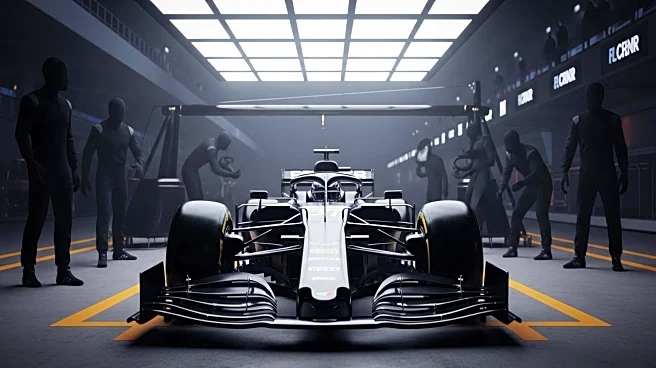What's Happening?
Former Formula 1 driver Juan Pablo Montoya has criticized Oscar Piastri for his strategic decisions during the Singapore Grand Prix, labeling him a 'fool' for leaving an opening for teammate Lando Norris. The incident occurred during the first lap of the race, where Norris attempted to capitalize on a gap left by Piastri, resulting in contact with Max Verstappen and subsequently with Piastri himself. Montoya praised Norris for his bold maneuver but acknowledged that it might have been a step too far according to McLaren's 'papaya rules,' which allow drivers to race each other as long as they avoid contact. The incident has sparked discussions about McLaren's racing standards and the dynamics between its drivers, especially as the team has already secured the constructors' championship title.
Why It's Important?
The incident at the Singapore Grand Prix underscores the competitive tension within McLaren Racing as both drivers vie for individual honors following the team's constructors' championship win. Montoya's comments highlight the delicate balance between team strategy and individual ambition, which could influence McLaren's approach to driver management and race strategy. The situation is significant for the Formula 1 community as it reflects broader themes of teamwork versus individual competition, potentially affecting how teams enforce internal rules and manage driver relationships. The outcome of this incident could impact McLaren's future race strategies and the drivers' standings in the championship.
What's Next?
McLaren team principal Andrea Stella has promised a review of the first-lap contact in Singapore, although he does not anticipate changes in driving styles between Piastri and Norris. As the season progresses, both drivers may become more assertive in their pursuit of the drivers' title, potentially leading to further intra-team competition. Observers will be watching how McLaren navigates these dynamics, especially in light of their established 'papaya rules.' The team's handling of this situation could set precedents for how Formula 1 teams manage internal competition and enforce racing standards.
Beyond the Headlines
The incident raises questions about the ethical and strategic implications of intra-team competition in Formula 1. It challenges the notion of team unity versus individual ambition, a recurring theme in motorsport. The 'papaya rules' at McLaren, which aim to balance competitive racing with team harmony, may need reevaluation if similar incidents occur. This situation could influence how other teams approach driver management and race strategy, potentially leading to shifts in how Formula 1 teams operate and enforce rules.










